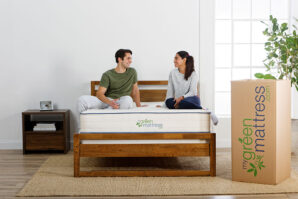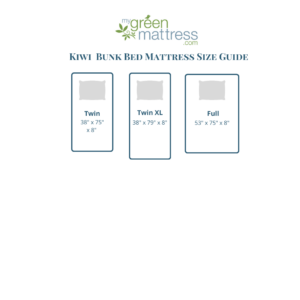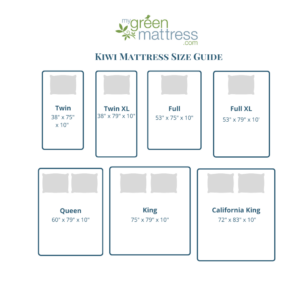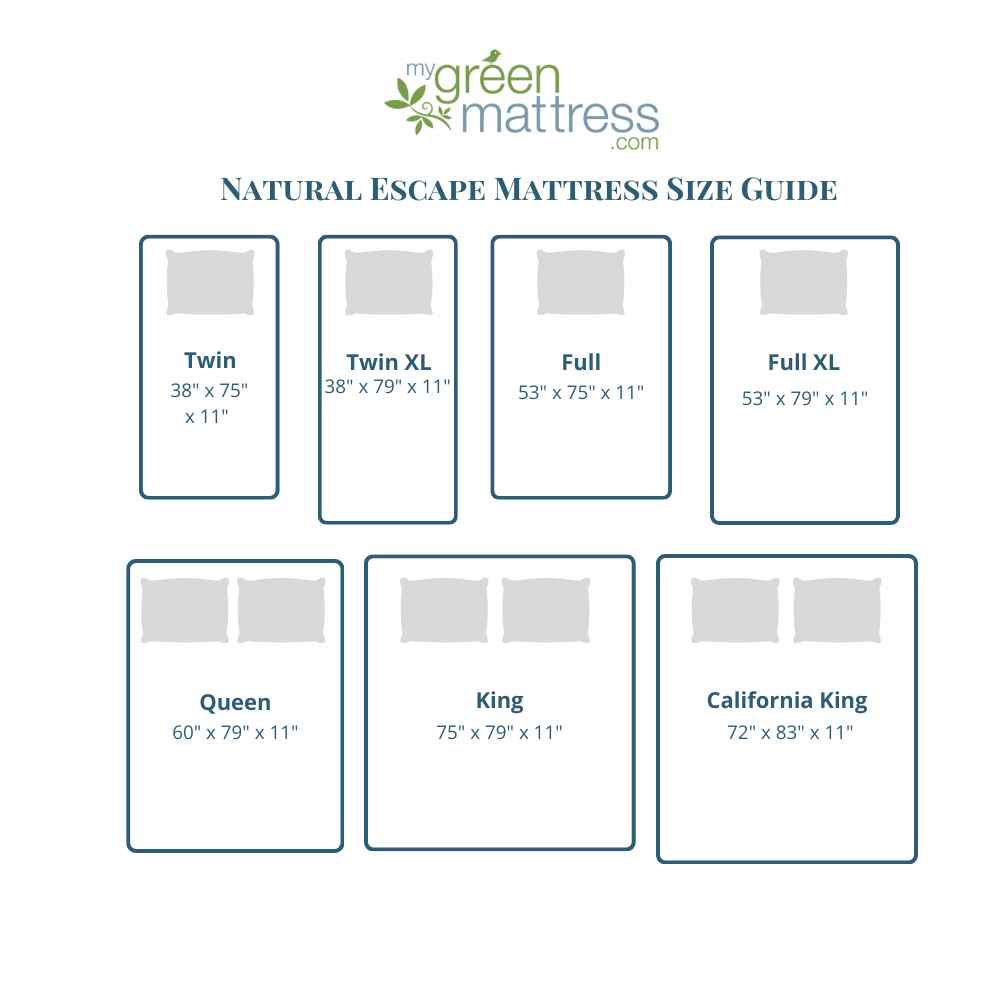Having the right mattress is just one step of many involved in learning how to sleep better, including knowing the best temperature to sleep in. But how often should you replace your mattress? Can you rely on a mattress for only a few years or multiple decades?
A mattress that’s properly cared for and cleaned can last anywhere from 10 to 20 years. A mattress that’s neglected, not stored properly when moving, or never vacuumed may only last six to 10 years. As you can see, you can double or even triple your mattress’s longevity with the right practices.
In this blog post we’ll explore how often you should replace your mattress, what the average life expectancy of a mattress is, and how to care for your mattress so it lasts for a decade or more. Keep reading!
How Often Should You Replace Your Mattress?
In most cases, families and couples find themselves replacing their mattresses every six to eight years. At a glance this appears like a decent amount of time, but it’s actually not a lot of time. Speed-oriented mattress manufacturers and retail brands have been so effective at selling their products that most consumers today don’t realize how long a quality-build bed should last.
If you’ve purchased a high quality mattress, you should only be replacing it every 10 to 20 years. This is a more-than-achievable lifespan with the right care and cleaning techniques.
When the day finally comes to replace it, it’s important to recycle your mattress too. As much as 80% of mattress materials are recyclable, yet less than five percent of all mattresses are recycled.
The duration of your mattress from the day it arrives at your house to the day it’s recycled or thrown out depends on all kinds of factors. Such factors include how well you take care of it, your home environment, how heavily your mattress is used, and your mattress cleaning schedule.
Here are some simple, yet effective mattress care techniques to ensure your mattress provides great sleep for as long as possible:
- Spend time caring for your actual mattress. Most people wash their bedsheets, pillowcases, and mattress protectors on a regular basis. You may be surprised to know that about half of people neglect to clean their mattresses.
- Handle your mattress well. The average American moves about 11 times throughout their lifetime and that includes moving beds around. Buy a mattress cover and consider hiring professional movers so your bed doesn’t get damaged (cuts, nicks, scrapes, etc) while in transit.
- Vacuum your mattress regularly. If you don’t use a mattress protector, the top surface of your mattress can collect grime, dust, and dirt over time. Even if you use a protector, vacuuming your mattress can get all of the dust particles out of it, thereby freshening your mattress without any chemicals.

How Often Should You Replace Your Mattress Pad?
If you’ve never used a mattress pad before, it’s an extra layer you place on top of your mattress but beneath the sheets for improved comfort. This layer both improves the durability of your mattress by adding a layer on top and softens the feel of your mattress.
Mattress pads are important to your bed as they add a little more comfort and protect your bed from dirt, dust, and other particles. You should replace your mattress pad every two to three years or as soon as you’ve seen that it’s worn out.
When purchasing a new mattress pad, make sure to choose one that fits your mattress correctly and is made of high-quality materials like organic cotton and latex. It’s also important to wash your mattress pad regularly to keep it clean and free from dirt and dust.

How Often Should You Replace Your Mattress and Box Spring?
Your mattress and box spring (if you use one) are the two largest and most structurally essential components of your bed. The average lifespan of a mattress and box spring is about eight to 10 years, although this varies depending on the quality of your mattress and how often you care for it.
When it comes to replacing your mattress and box spring, start by looking for signs of wear and tear. If you notice sagging, bumps, lumps, or any other aesthetic or structural deficiencies, it’s usually time to replace that part of your bed.
Your mattress and/or box spring should be replaced if you notice these issues or are no longer comfortable every night when using them. Most people end up using a mattress, box spring, or both for about a decade or more before replacing them.
If you’re already shopping for a new mattress or box spring, make sure you’re purchasing products that work with one another. You don’t want a box spring that can’t hold the weight of your mattress or a mattress that’s smaller than the box spring.
You may also want to consider an adjustable bed base if you have back or neck pain. These types of beds allow you to move the top or bottom of your bed up, which redistributes your weight and limits the amount of pressure on your back.
How Often Should You Replace Your Mattress Topper?
A mattress topper is an additional layer of padding placed on top of a mattress. It adds comfort and support to a mattress and is often used to improve the longevity of a mattress. Most households should replace their toppers every two to four years or as soon as they appear worn out or show a body impression greater than one inch.
When purchasing a new mattress topper, you should only go with organic latex. Cotton toppers are too dense and heavy and difficult to wash. Latex is a naturally hypoallergenic material that’s easy to wash if need be, lightweight, and easy to adjust to your liking.
We make a certified organic latex topper that goes great with your existing bed and any of our own. Buy one now for two more inches of comforting, supportive, clean latex.
What Is the Average Life Expectancy of a Mattress?
The average life expectancy of a mattress depends on the mattress build and how well it’s cared for. The average life expectancy of most mattresses purchased online or in retail stores is between eight to 10 years.
A soundly-built certified organic hybrid mattress, like our own, can last up to 20 years when taken care of. There’s of course a bit of maintenance required on your part of course, but we’ve handcrafted our mattresses to stand the test of time.
Our process includes sourcing the highest quality organic materials, ensuring they’re certified by leading regulatory bodies, using a minimal waste production process in a certified organic factory, hand-tufting our mattresses, and standing behind our mattresses with a 20-year warranty.
Remember that your mattress may show signs of wearing out before it reaches its typical lifespan. However, this usually only happens with low-quality beds. If you’re buying an organic hybrid mattress, it will do very well for you.
How to Care for Your Mattress
To ensure your mattress lasts as long as possible, it’s essential to know how to care for your mattress. Here are some tips for caring for your mattress:
- Vacuum your mattress at least once per season to remove dust and small particles that have accumulated underneath your bedsheets.
- Use a mattress protector to prevent stains and everyday wear.
- Rotate your mattress every three to six months to ensure even wear.
- Don’t jump on your mattress or sit on it for prolonged periods of time as this accelerates its deterioration.
- Keep your mattress away from direct sunlight and moisture as these elements reduce its long-term durability. That being said, sunlight is a natural disinfectant and can improve stain removal and odor reduction when needed, so use wisely.
- Perform detailed cleaning on your mattress whenever it’s needed. Use a vacuum cleaner and a mild detergent to remove dirt and dust. For stubborn stains, use a mixture of baking soda and water.
- Use the right type of bed support system. If you’re using a platform bed, make sure the slats are no more than three inches apart to ensure sufficient support. If you’re using a different type of support structure, make sure it’s weight graded for your size and weight of bed.
Frequently Asked Questions About Replacing Your Mattress
Buying sleep products like mattresses and pillows is one of the biggest health-related decisions you make on a periodic basis. The products you choose determine how comfortable you are while sleeping and how well-rested you are when you wake up.
Buying a replacement mattress is a considerable financial investment and shouldn’t be made hastily. If you have more questions than answers right now, you’re in a good spot, because we’ve researched answers for you.
Check out our answers to four of the most commonly asked questions about mattress replacements:
Is a Mattress Still Good After 20 Years?
While not all mattresses last 20 years or longer, if you’ve kept your mattress in good condition, you may be able to get 25 years out of it. That being said, there are reasons you may not want to hold onto a mattress after 20 years.
The longer you have a mattress, the more prone dust mites are to living in it. Dust mites love dark, warm, moist environments, and most mattresses are prone to offering these conditions over time. The longer you use a mattress, the more slight amounts of moisture and dead skin accumulate, which makes it more appealing for dust mites.
While organic latex is naturally dust mite-resistant (and also in all of our mattresses), it can’t perfectly repel them forever. Once your mattress reaches the 20-year mark, it’s best to replace it.
How Do I Know If My Mattress Is Worn Out?
Your mattress usually provides clear physical signs of having run its course, like large body indentations or impression, irregular bumps, or a frayed or split top layer. Any of these are proof that your mattress has reached the point of no return and should be replaced.
What Is the Average Life of a Bed Mattress?
The average life of a mattress is usually six to 10 years. Mattresses don’t last as long if they’re used heavily each day and last longer if they’re cleaned and rotated regularly.
Rotating your mattress at least once every three to six months slows the formation of body indentations and irregular shapes.
Is It Unhealthy to Sleep On an Old Mattress?
While you want to get as much use out of your mattress as possible, you don’t want to keep a mattress so long that it poses health problems. Dust mite-related health issues like scratchy or red skin, coughing, watery eyes, and difficulty breathing can become more common the longer you’ve had your mattress.
Wrapping Up
Getting the best night’s sleep available to you depends on keeping your mattress and related materials in great shape. Your mattress should be replaced every 10 to 20 years, your box spring every eight to 10 years, your mattress topper every two to four years, and your mattress protector or pad every two to three years.
Take the easy route to perfect sleep every night with My Green Mattress. We offer the world’s best organic hybrid mattresses with protectors, sheets, and pillows to boot. Shop now or reach out with any questions you have.












